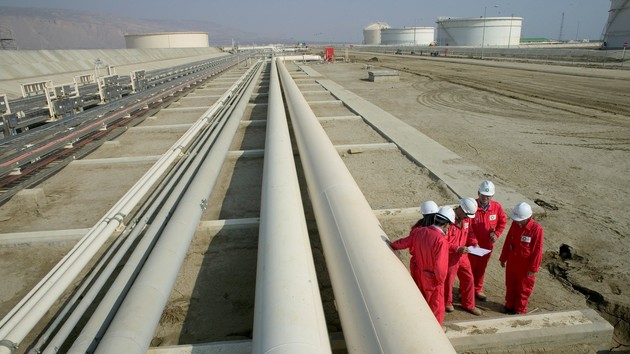Military clashes between Armenia and Azerbaijan over the territory of Nagorno-Karabakh have not yet affected energy supplies from the region, but could disrupt oil and gas exports should the conflict escalate, analysts said on Monday, Reuters writes in the article Energy markets on edge over Armenia-Azerbaijan conflict. Oil and gas rich Azerbaijan is particularly vulnerable to any potential energy export disruption, though overseas supplies are not in close proximity to Nagorno-Karabakh. Armenia is home to the Metsamor nuclear power station, which is already in a precarious situation due to earthquake risk.
Oil
Azerbaijan’s primary route for oil exports is the Baku-Tbilisi-Ceyhan pipeline, which accounts for around 80% of country’s oil exports and runs via Georgia and on to the Turkish Mediterranean coast. It has capacity of 1.2 million barrels per day, or more than 1% of global oil supplies. Currently it exports over 0.5 million barrels per day of oil. Azerbaijan also exports oil via Russia through the Baku-Novorossiisk pipeline and via Georgia by rail, as well as the Baku-Supsa pipeline. “The Nagorno-Karabakh conflict has concerned the international community in part because of its threat to stability in a region that serves as a corridor for major pipelines taking oil and gas to world markets,” OilX consultancy said in a note.
Gas
Azerbaijan has plans to increase natural gas exports to Europe. BP is leading the international consortium developing Azerbaijan’s giant Shah Deniz field, which is expected to make its first deliveries to Europe later this year. The Shah Deniz I field, which has been pumping gas since 2006, has production capacity of 8 billion cubic metres (bcm). Output from Shah Deniz II is expected to reach 16 bcm per year, with 10 bcm earmarked for Europe and 6 bcm for Turkey. S&P rating agency told Reuters it regarded the conflict as “smouldering”, without threats to energy supplies for now. “We will follow the implications for the sovereign finances, energy flows and companies’ liquidity in case of further escalation of the conflict,” it said.






